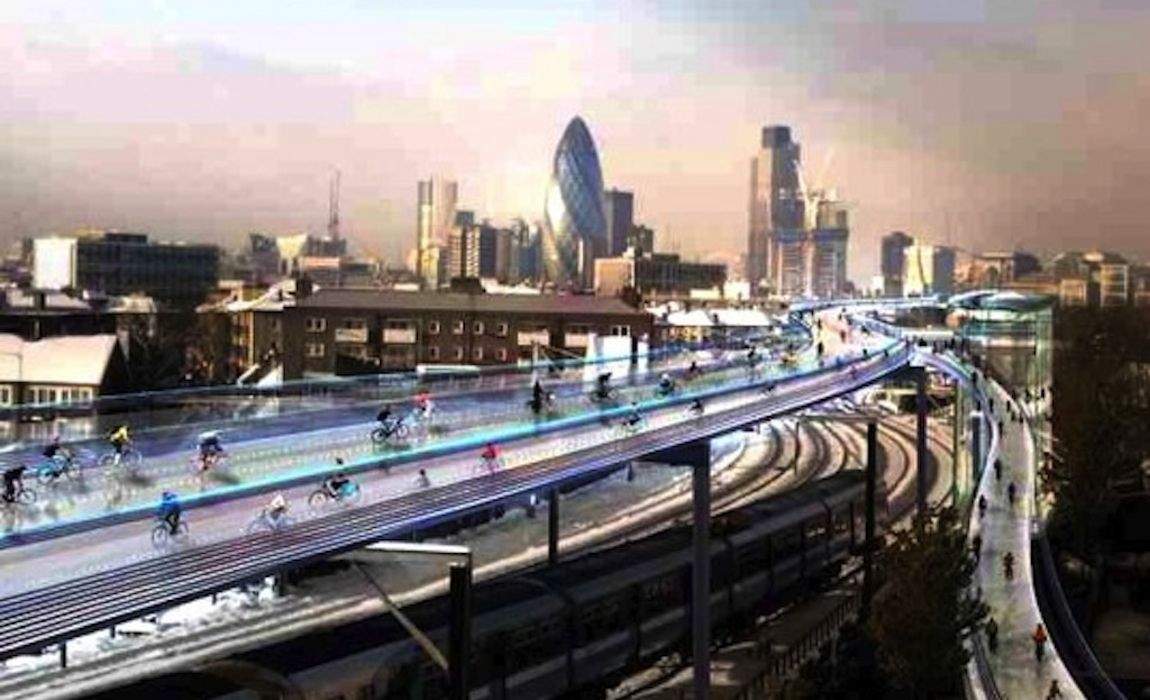Elevated Car-Free SkyCycle Paths Proposed for London
Move over flying cars; here's a healthier future.
With 24 percent of London's rush-hour traffic now made up of cyclists, the call for infrastructure upgrades is growing louder. Following the deaths of six cyclists within a fortnight last November, more than 1000 concerned riders staged a 'die-in' outside the Transport for London headquarters in mid-December. Now, architect and cycling fan Lord Norman Foster is proposing a solution: the SkyCycle.
It's 135 miles (or 217km) of car-free cycle paths that would be built in the air, supported by pylons, at a height of three storeys, above the routes established by London's current railway lines. Fifteen metres of width would handle up to 12,000 cyclists every hour. More than 3 million people would live and work within ten minutes' of one of SkyCycle's 200 access points.
"It's a lateral approach to finding space in a congested city," Lord Foster said. "By using the corridors above the suburban railways we could create a world-class network of safe, car-free cycle routes that are ideally located for commuters."
SkyCycle is a collaboration between Foster and Partners, Space Syntax and Exterior Architecture. Space Syntax director Anna Rose compared the system's potential to that of previous major infrastructure changes that have "transformed the fortunes" of London.
"Bazalgette's sewer system helped remove the threat of cholera to keep London at the forefront of the Industrial Revolution; the Underground strengthened London's core by making long-distance commuting possible," she said. "SkyCycle is conceived in this tradition as a network of strategic connections from the suburban edges to the centre, adding the much needed capacity for hundreds of millions of cycle journeys every year with all the social, economic, environmental and health benefits to London that follow."
However, London is not the final stop. Sam Martin of Exterior Architecture told the Guardian that SkyCycle's ambition is, ultimately, international in scope. "The dream is that you could wake up in Paris and cycle to the Gard du Nord. Then get the train to Stratford, and cycle straight to London in minutes, without worrying about trucks and buses."
The catch? The usual — time and money. The current projected cost is £220 million and the construction period is up to 20 years. In the meantime, however, Londoners have been taking advantage of their new cycle super highway.
Via Inhabitat.





